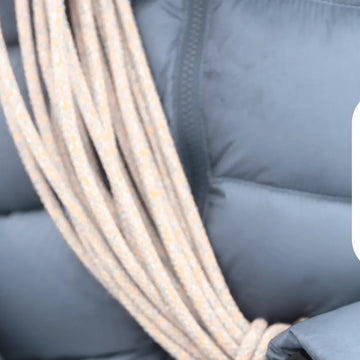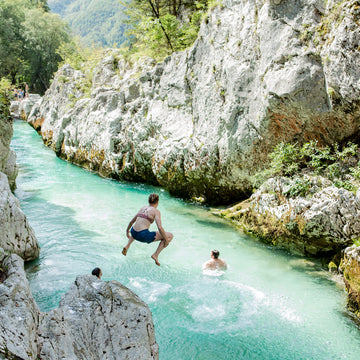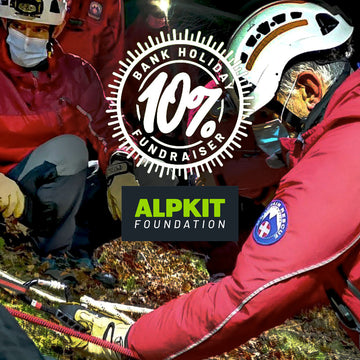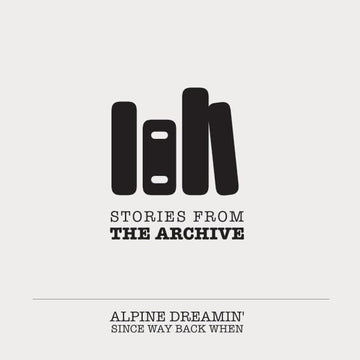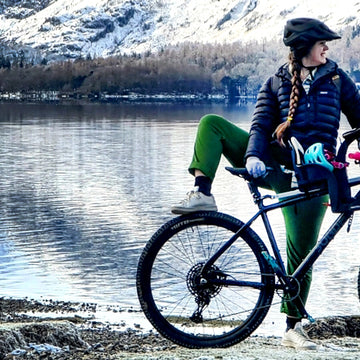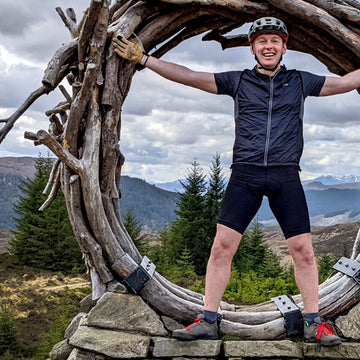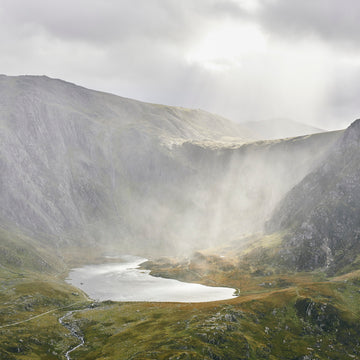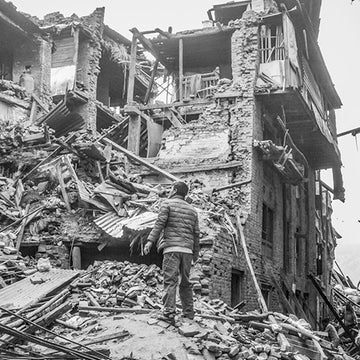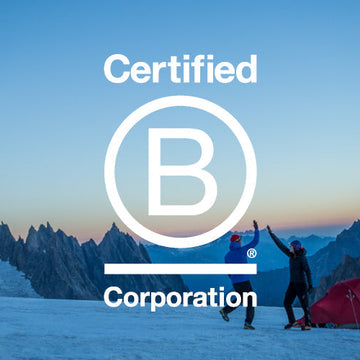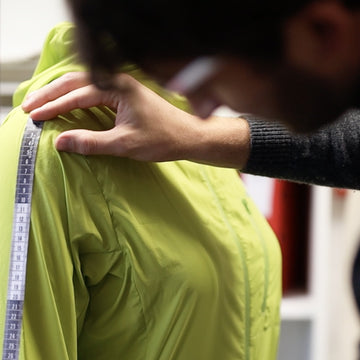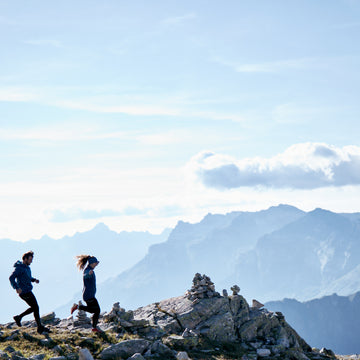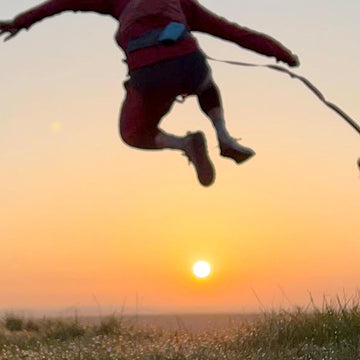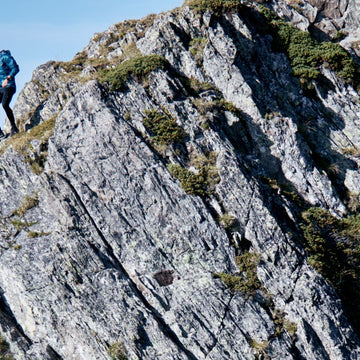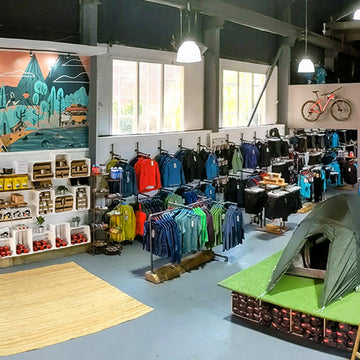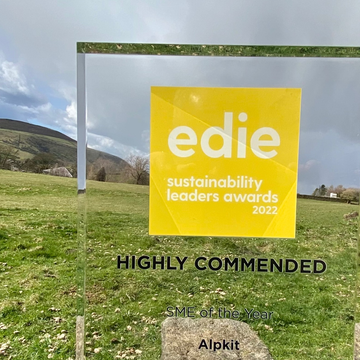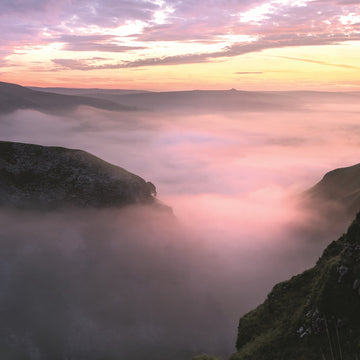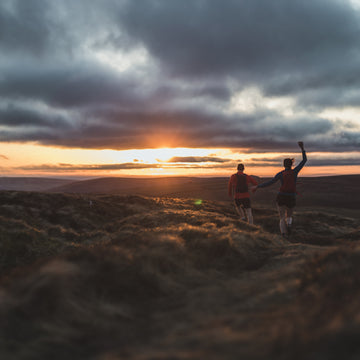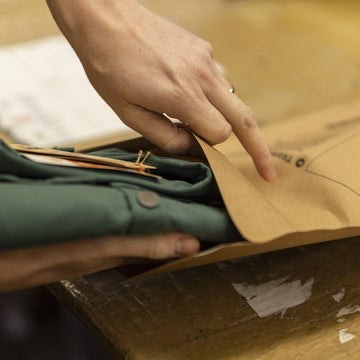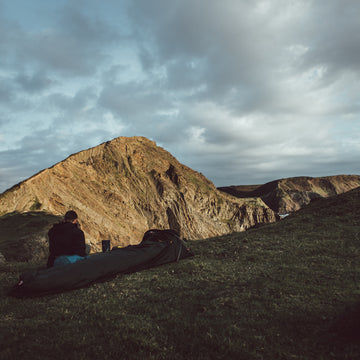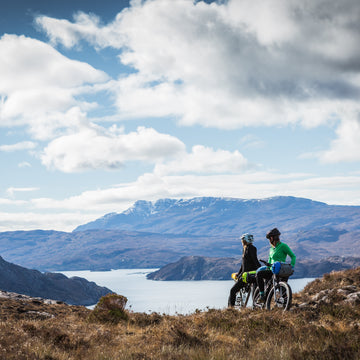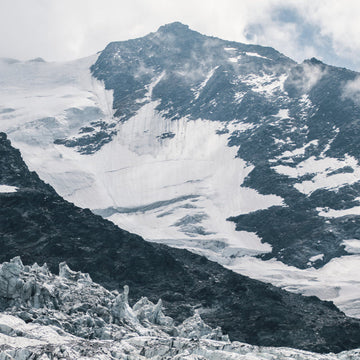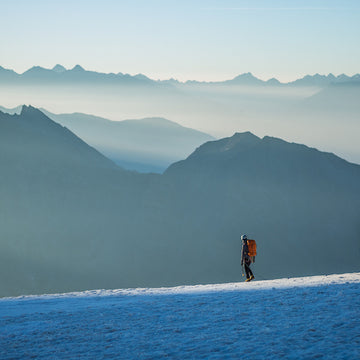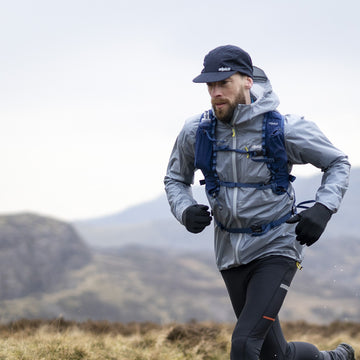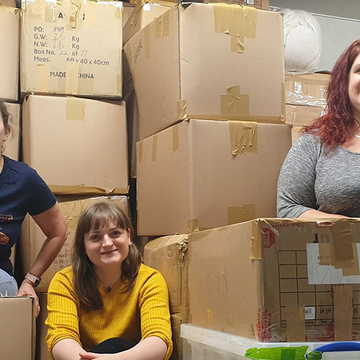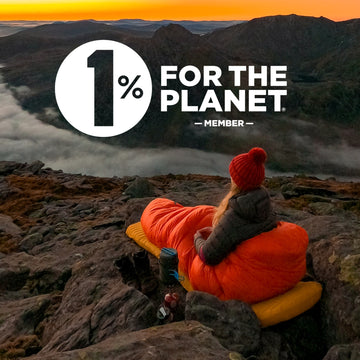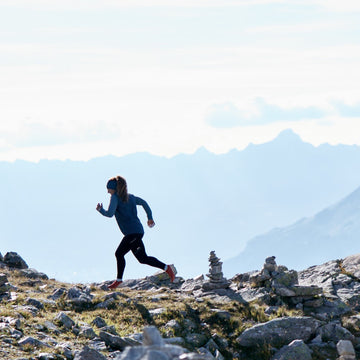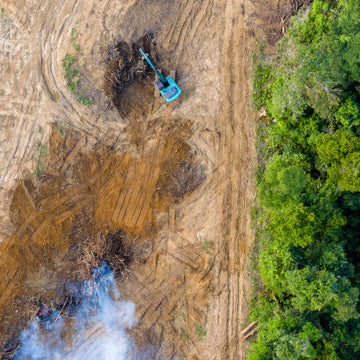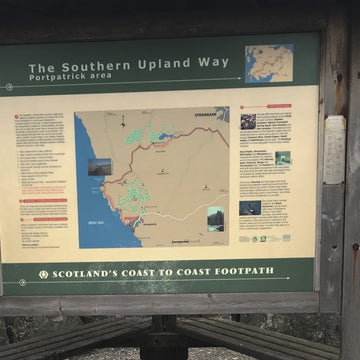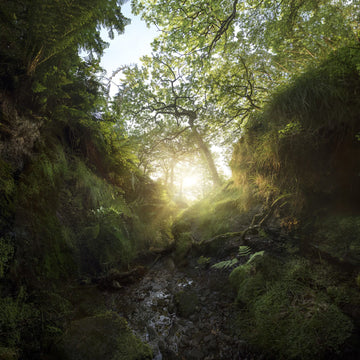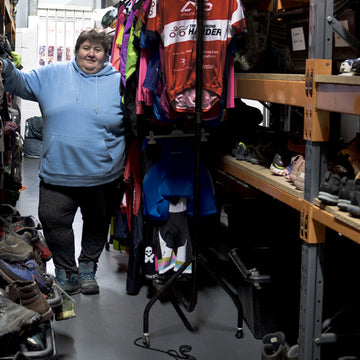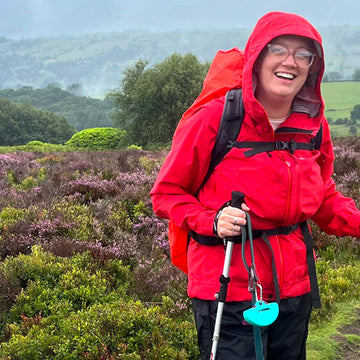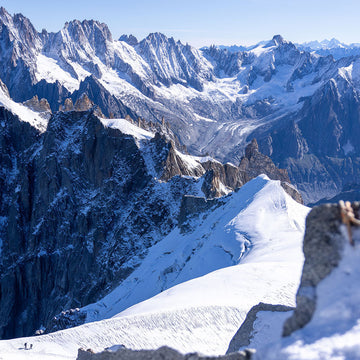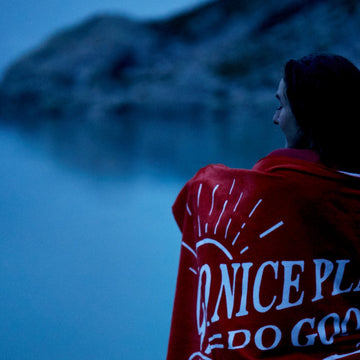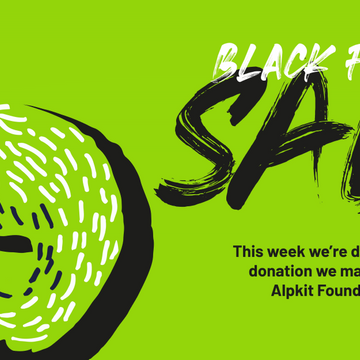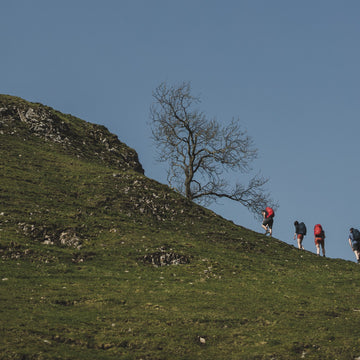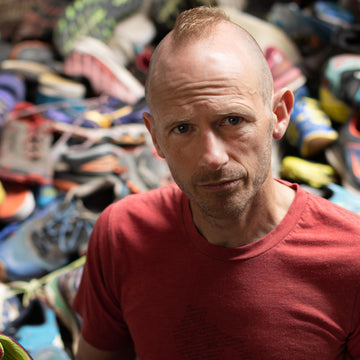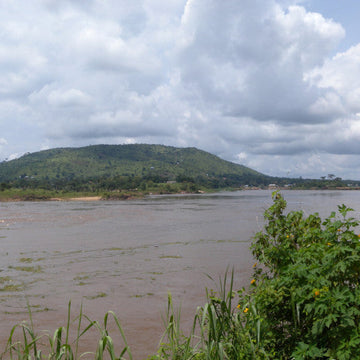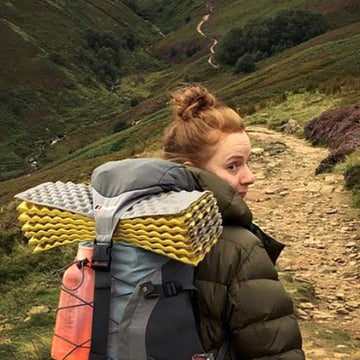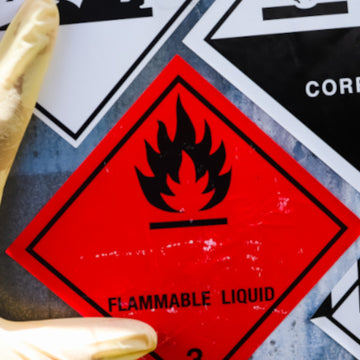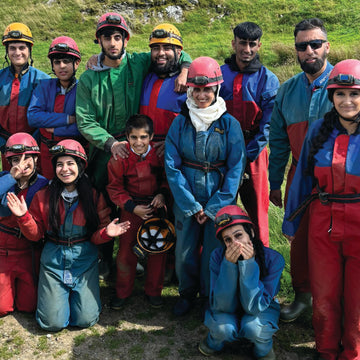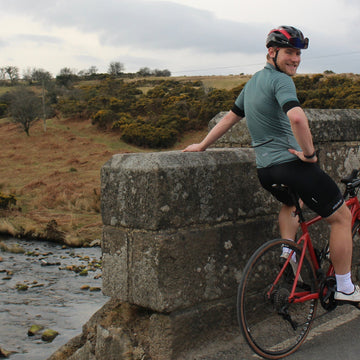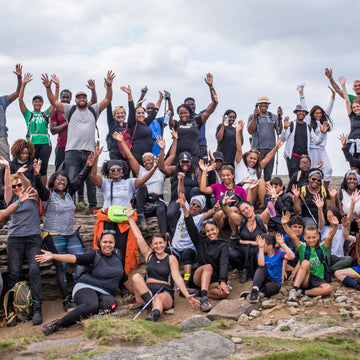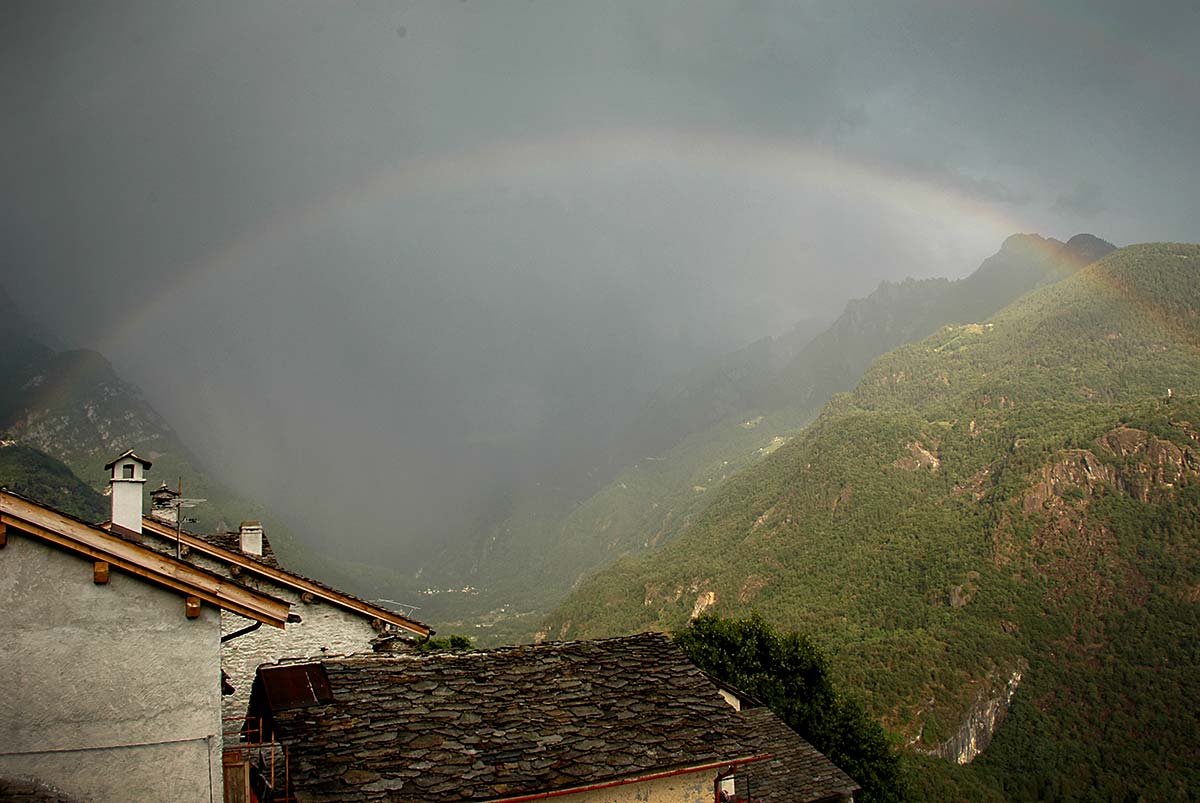
Publishing our Sustainability Policy
We've been going nice places and doing good things for a while, well before we set up Alpkit back in 2004,and it's developed into our main guiding principle. However,we’ve always recognised that it’s only possible if there are still nice places left to go to.
Our love for the outdoors means that we’re continuously evaluating our actions and their impact on theplanet. But we're also very conscious of how our actions as a business affect our employees, the globalised workforce we use, our local area, and indeed wider society. After all, true business sustainability is threefold: environmental, social and economic.
It's something that we've not always shouted about too loudly; we've just been doing what we can that fits with our personal beliefs about how a outdoor company should behave.This year though, we decided to finally set down our ethical and environmental principles in writing,with help from Ethical Consumer magazine, to better explain our commitment to sustainability. These guidelines will also help us to hold ourselves to account when we come to issue annual sustainability reports.
We’re not perfect – to some extent we operate in an imperfect industry – and a lot of the obstacles we face don’t have simple solutions. But we hope that setting out these principles will help us to continue to build a truly ethical and sustainable business.

1. Believing in a circular economy
A circular economy is a method of reducing resource-use and waste by keeping all products and materials in use for as long as possible: re-using, repairing, recycling and remaking.
What we are doing
- Gear you’ll love for longer - We always strive to develop products you’ll look after and use year after year for multiple activities. We make our products as long-lasting as possible and back that up with ourAlpine Bond as standard.
- Hack, patch and sew - The products you love the most inevitably get used and abused the most. We hate to see perfectly useable kit consigned to landfill and keeping our gear going reduces consumption. That’s why we repair our own products - and any other brand too - and have done since 2004. We have repair stations in Hathersage and Keswick and a down washing and waterproof reproofing service in Ambleside.
- Closing the circle - When you’ve decided that you’ve reached the end of the road with one of our products we encourage you to send it back to us to help with our Continuum Project. Funded by the Alpkit Foundation, the Continuum Project distributes donated outdoor gear to various charities, keeping those who need it most warm and dry.

What we want to do in future
- We are starting to design more recycled and recyclable materials into our products, but we want to accelerate this transition, and increase awareness of our repairs service.
- Reach a point where all products have a fully evidenced end-of-life destination, either through the Continuum Project or by reusing materials in new products.
- Work with the wider outdoor industry to increase awareness and improve standards.
2. Our products and the environment
We spend a lot of our free time enjoying all the natural world has to offer and recognise that we have a responsibility to protect it. We may only be a small company in the context of the outdoor and clothing industries, but we try to take bold decisions and set the right example.
What we are doing
- Changing materials and techniques - We avoid using environmentally harmful materials as much as possible. As a consequence we: don’t use PVC; have removed toxic BFR flame retardants from our tents; use organic and Fairtrade cotton where possible; and are moving away from long-chain water-repellants (PFCs) which don’t break down in the environment, (starting with our down jackets in 2019).
- Use slow transport - We try to avoid using air freight, choosing the slower sea freight option for shipping wherever possible.
- Mass recycling - To protect products in transit, they are often packed in plastic polybags and cardboard boxes. Thankfully Alpkit HQ is near to a recycling plant that will process polybags. We also re-use boxes and shred unusable ones to produce alternative bubble wrap.
- Collective action - We have joined a Single Use Plastics Group organised by the European Outdoor Group and collaborate with academics at Manchester Met University and Leeds University around microplastics and environmental performance.
What we want to do in future
- Eliminate all non-recyclable, non-recycled or non-compostable packaging by the end of 2019.
- Increase the recyclability of our products by adopting new innovations in materials.
- Expand the use of short-chain DWRs to our entire non-technical range.
- Establish a clear end-of-life cycle for difficult to recycle products like sleeping mats and wetsuits.

3. Our products and animals
Animal products have been used in performance outdoor gear for decades. Although synthetic alternatives are catching up, some animal products still offer superior performance – and sometimes cost - which is why we continue to use them.
Increased demand for animal products in recent years has resulted in cheap, fast techniques which take no consideration for animal welfare. When sourcing animal products (goose and duck down, merino wool and goat-skin leather) we demand the most humane methods available to us.
- Down - We only use down from non-live-plucked, non-force-fed suppliers who comply with the Responsible Down Standard (RDS).
- Merino - The merino we use is exclusively from non-mulesing farms. Mulesing is a cruel, unnecessary and ineffective procedure where sheep have strips of skin cut from their rear to prevent a disease called fly-strike.
- Leather - We avoid using leather wherever possible, replacing it with synthetic alternatives where suitable.

4. People making our products
Small and medium-sized companies like us face big challenges in ensuring that the people making our products are treated fairly and looked after.
What we are doing
- The majority of our suppliers are based in China, the UK and Taiwan. Before we place an order, a senior manager will always conduct their own factory audit so we can see working conditions first-hand.
- We ensure that all our suppliers have agreed to the Ethical Trading Initiative’s (ETI) base code as minimum. The ETI protects against discrimination, child labour and forced labour, and supports trade unions, living wages and maximum working hours.
- We seek our own assurances on safety equipment, sub-contracting, student labour and staff facilities
- As a smaller business we can personally make regular visits to factories, developing long-term relationships with trusted responsible suppliers.
- We are aware of the risks of modern slavery in foreign supply chains and always strive to investigate second-tier suppliers and the provenance of raw materials to avoid anywhere with links to modern slavery.
- As a smaller company we don’t have the means to commission independent supply chain audits. However, we always select factories which are already used by industry leaders and whose audit practices and policies we trust.
-
What we want to do in future
As we grow, expand our capacity to conduct independent reviews of the first and, especially, second tiers of our supply chain.
5. At Alpkit HQ
Unlike many retailers we are investing in local stores and local manufacturing, opening four new stores since 2017 and manufacturing around 120,000 items per year in the UK. It might not seem like a huge operation, but we take workplace safety, waste and energy seriously.
What we are doing
- Being a good employer and providing a safe workspace - As a relatively small business with just 75 employees, ensuring everyone’s safety and welfare underpins everything we do.
- Being environmentally switched on about waste – We recycle every bit of waste from the office that we can and compost everything compostable.
- Using renewable energy - All our work spaces are powered by either Opus or Octopus Energy on a 100% renewable energy tariff. Alpkit HQ is heated by a wood pellet powered burner and log burning stove.
- Getting our staff on bikes - As a bike retailer all employees can take advantage of the Cycle to Work scheme and, hopefully, a Sonder bike too.
- Doing the little things – We use 100% recycled paper in our offices and shops, always choose low-energy lighting and clean with ethically conscious products.
What we want to do in future
We have ambitious plans to open more stores in outdoor hotspots. We also want to continue to improve the sustainability of our workspaces and the job satisfaction of our colleagues.

6. Our business ethics
We know that we have a responsibility to always follow good economic practices, build strong relationships with suppliers, staff and customers and continue to practice good business ethics as the company grows.
What we are doing
- Economic sustainability - We want to be in business for decades to come, designing great gear, providing jobs and advocating environmental responsibility. We therefore need to ensure our economic viability through sound business planning and strategic management.
- Fair payments - Building trust and long-term relationships with suppliers who meet our quality and ethical requirements by completing payments on time and in full.
- Tax policy - Tax dodging and evasion are commonplace in business. We see how taxes support vital infrastructure and contribute to supporting the less fortunate in our society, which is why we are proud to pay them in full.
- Data Protection – We want to be open about how and why we use the data you give us. For a detailed breakdown please visit our ‘Privacy Policy page.
- Diversity – We take a zero-tolerance approach to bullying and discrimination and are working to limit unintended biases in our recruitment.
- No illegal transactions – We promote internal transparency to ensure no illegal transactions can occur
- No political donations or lobbying - We’re in business to get people outdoors with the best kit possible, not to lobby governments or fund political parties.
What do we want to do in future
Continue to uphold our business ethics and be open-minded to additions that may be needed. We’re exploring the possibility of modifying our Founding Articles or becoming a B Corporation.

7. Sharing our success
We’ve always wanted to use our company as a force for positivity. The Alpkit Foundation is our way of paying a little bit back and getting as many people into the great outdoors as possible. Since 2015 Alpkitdonates1% of monthly sales, at least 10% of its profits each year, as well as proceeds from events such as the Big Shakeoutto the foundation and so far has given more than £200,000 to over 575 amazing projects.
The foundation is an independent registered charity with a board of trustees made up of Alpkit staff, customers and independent experts. The Foundation supports a variety of events, trips and projects with funding interests in: the environment, education, participation, diversity and health and wellbeing. You can find out more about the Foundation’s work here: /pages/foundation
What we want to do in future
- Through the Foundation we want to create specific ring-fenced pots of money for specific goals.
- We have a dream of buying our own piece of land and creating a wild space by planting trees and encouraging wildlife. We would use this space foor active carbon-capturing and for educational trips by local school groups.

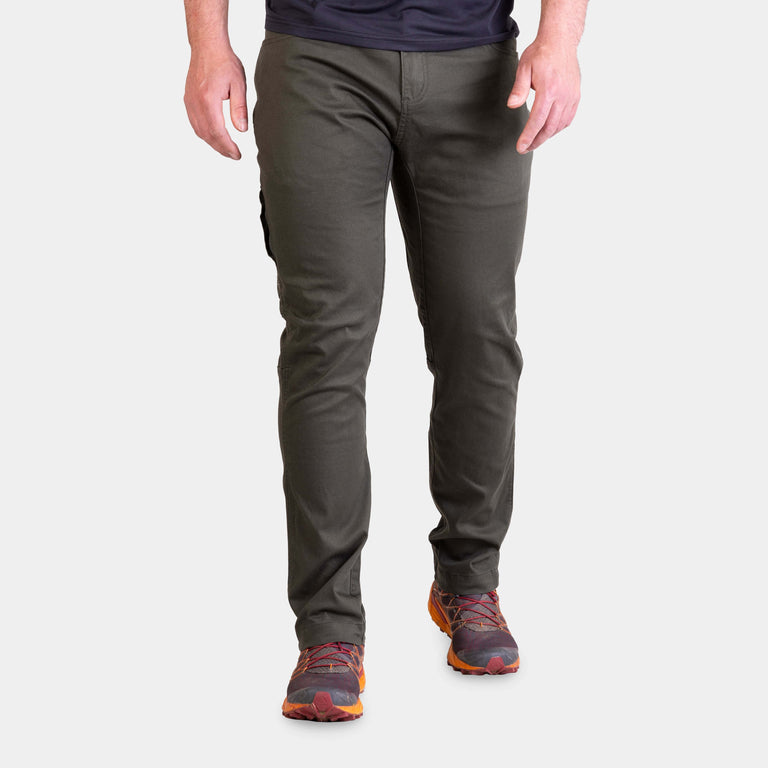
![Kraft [Mens]](http://alpkit.com/cdn/shop/files/KRAFT_MENS_1.jpg?v=1762259203&width=768)


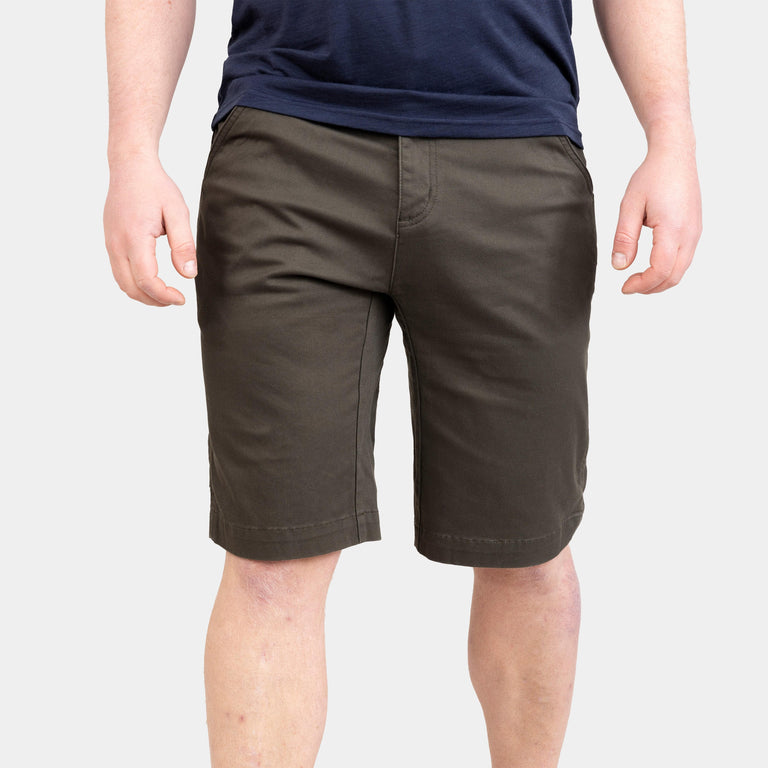
![Werk [Mens]](http://alpkit.com/cdn/shop/files/WERK_MENS_OUTER-SPACE_TENERIFE_005982__4000px.jpg?v=1695900548&width=768)
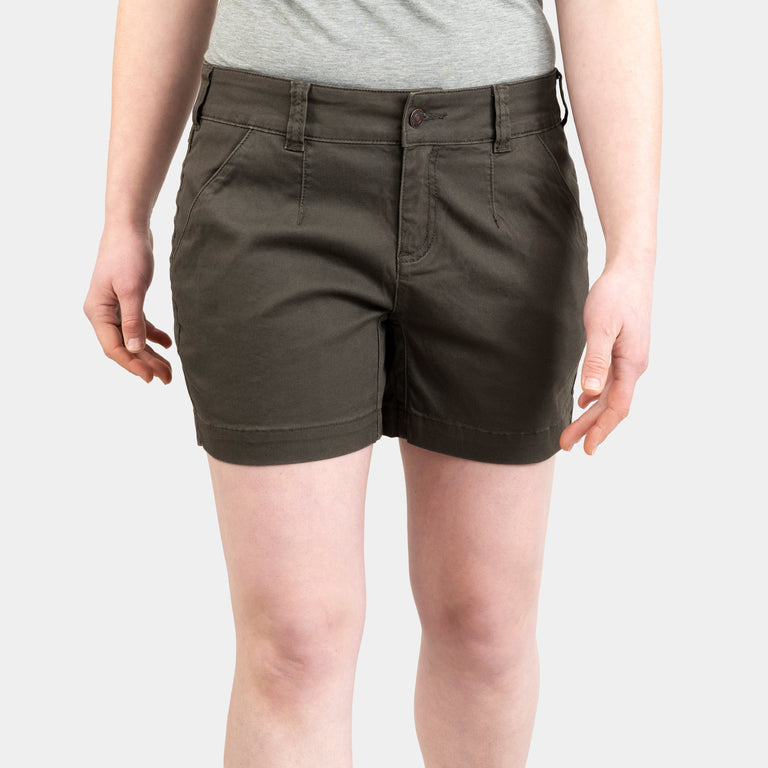
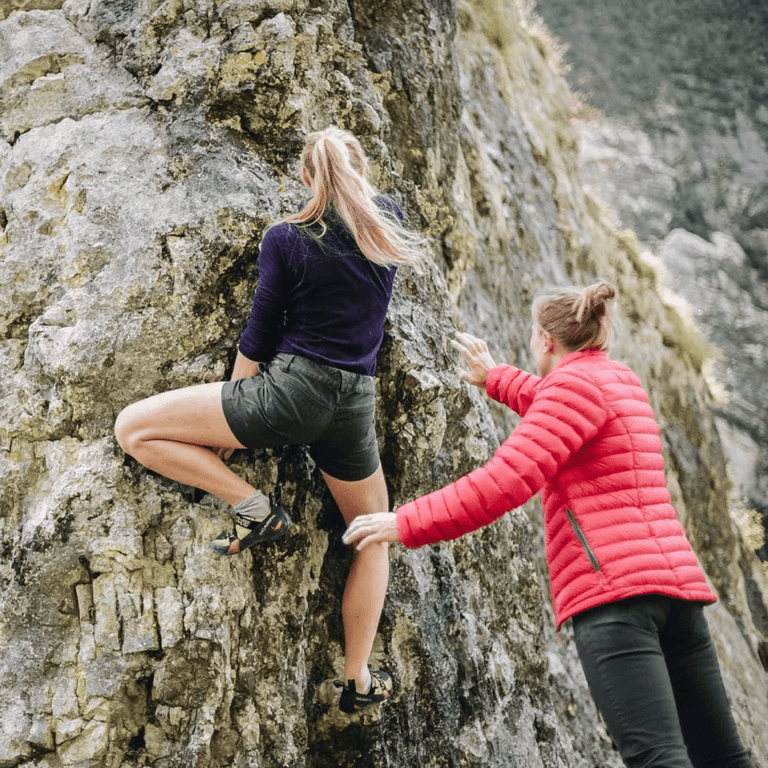
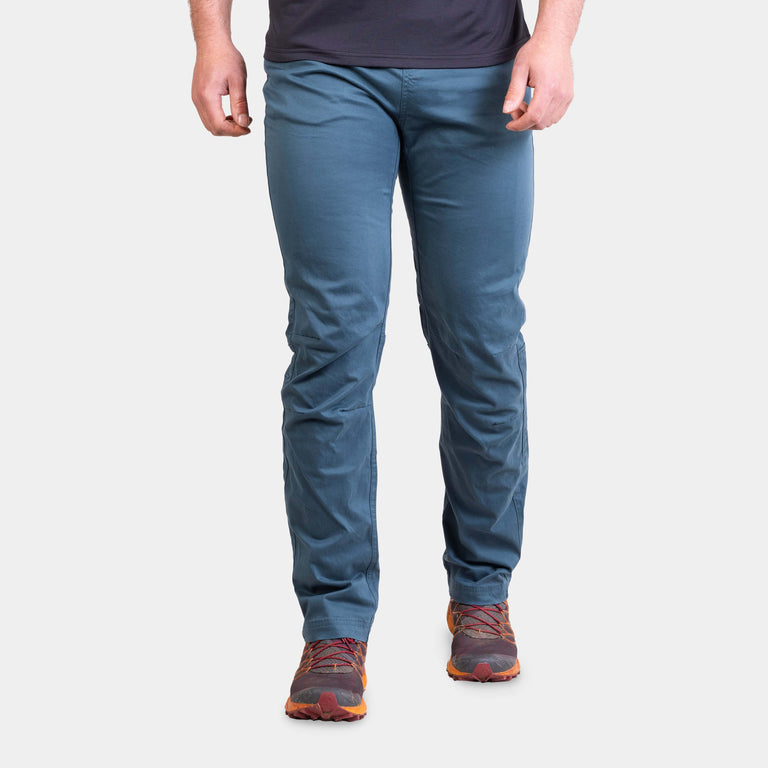
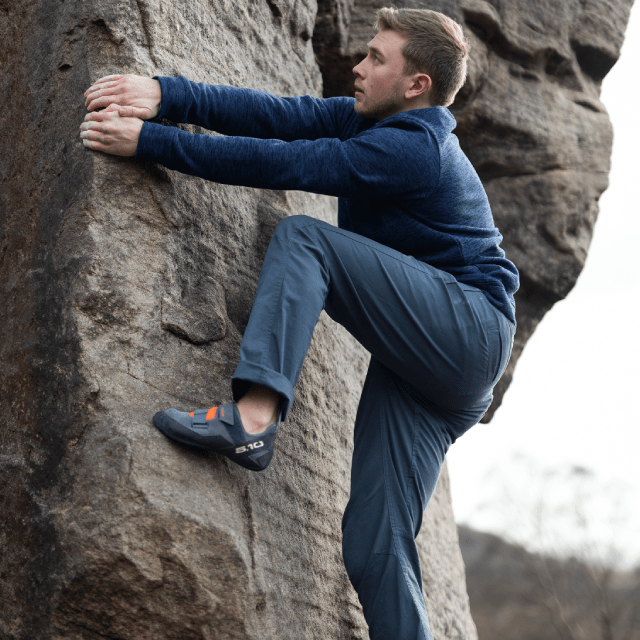
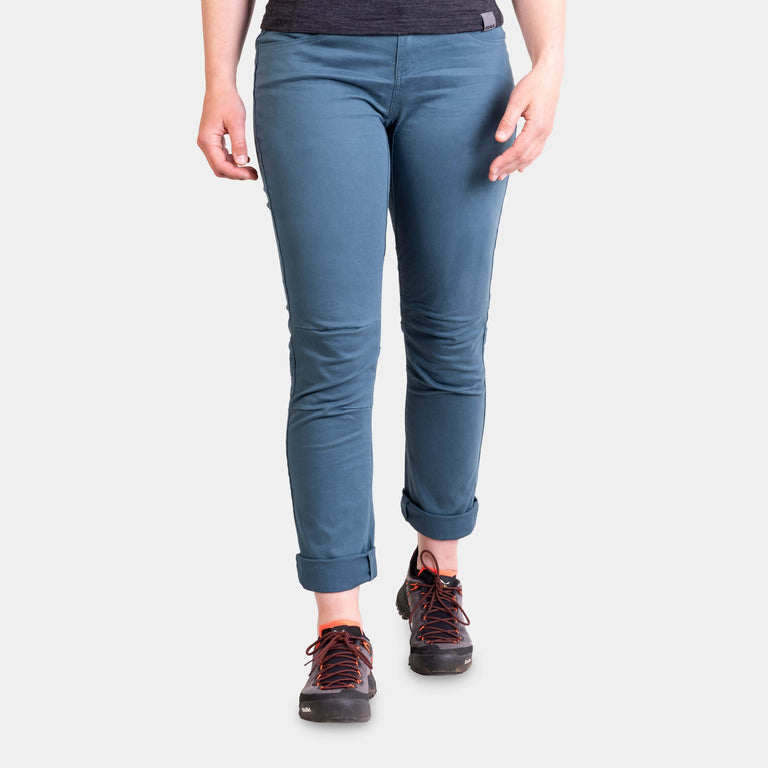
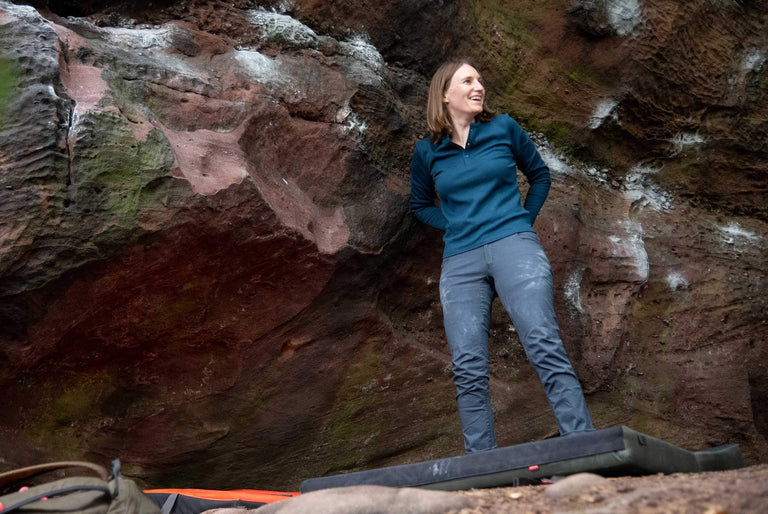
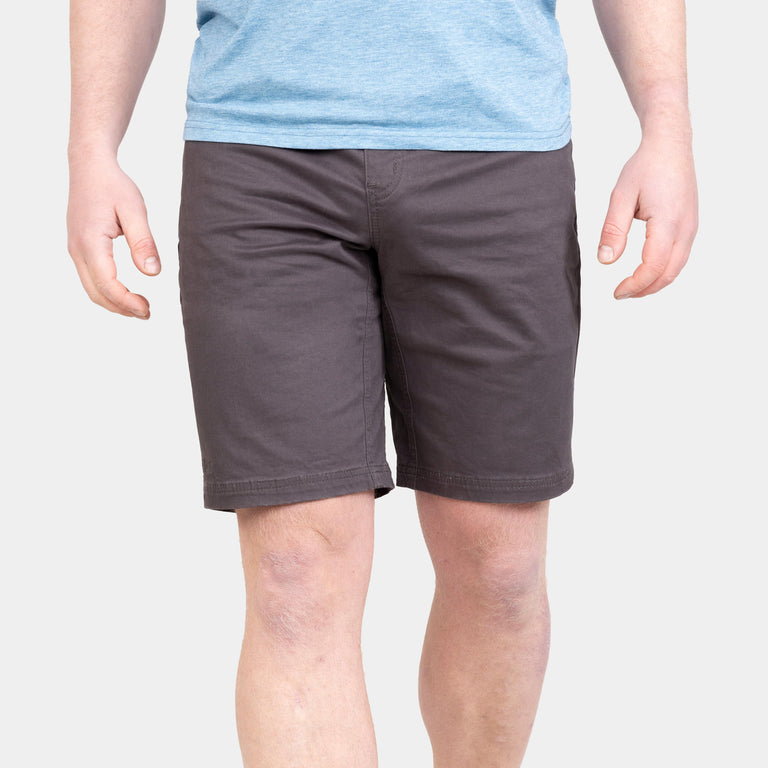
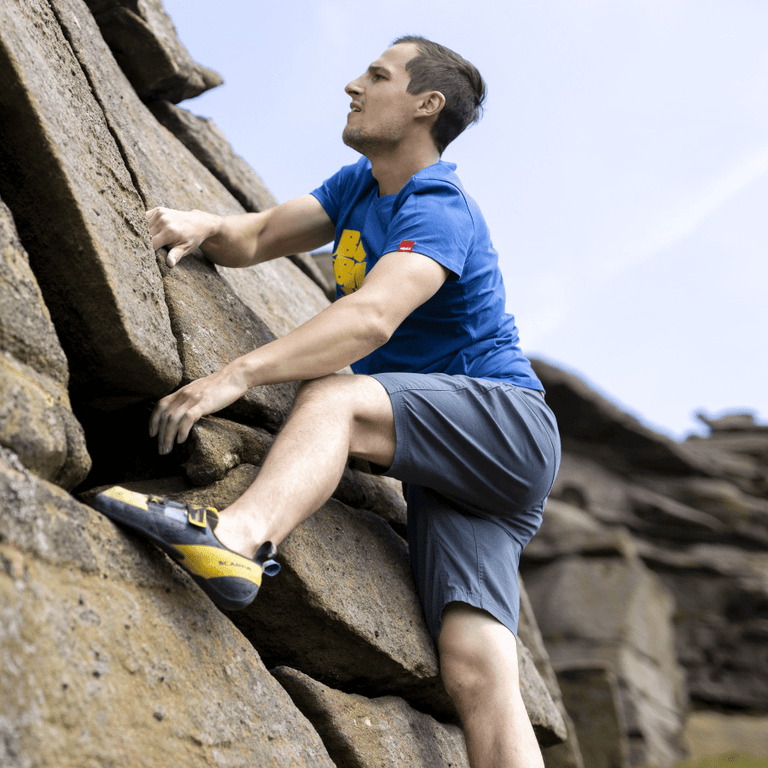
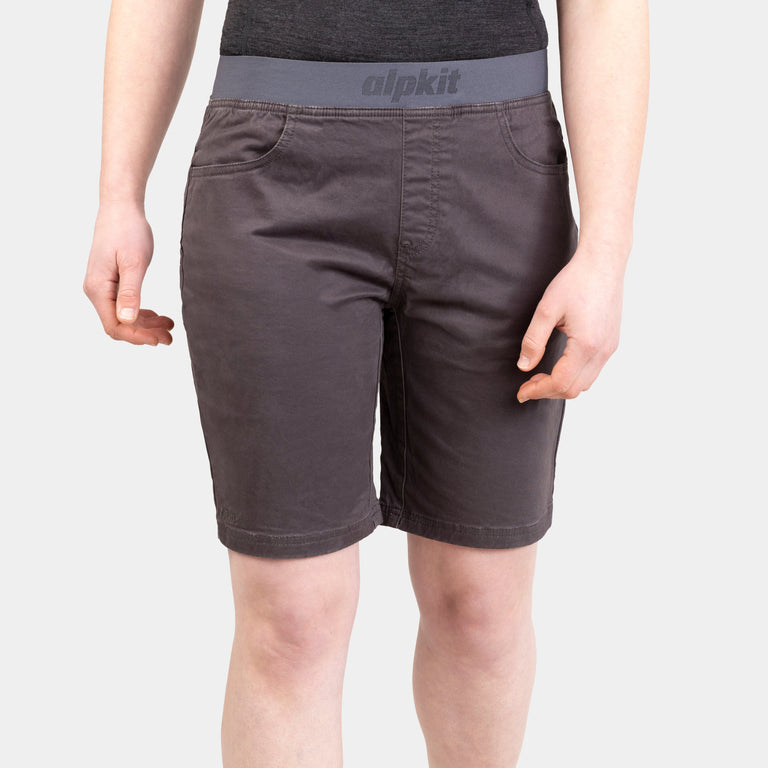
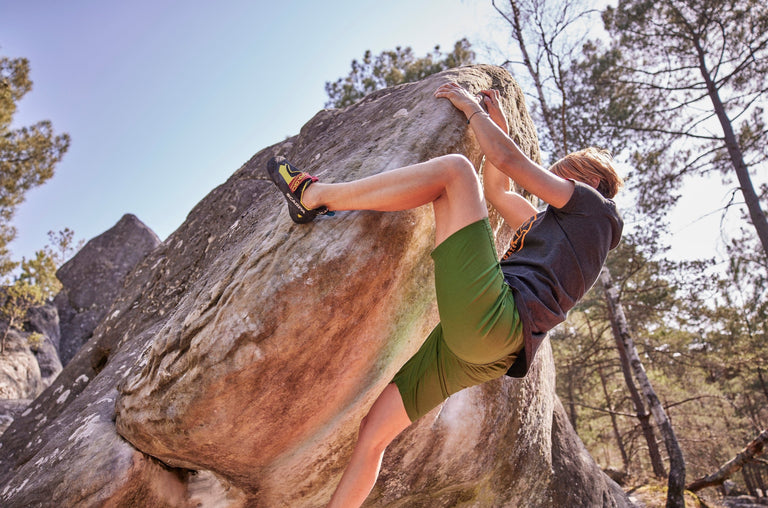
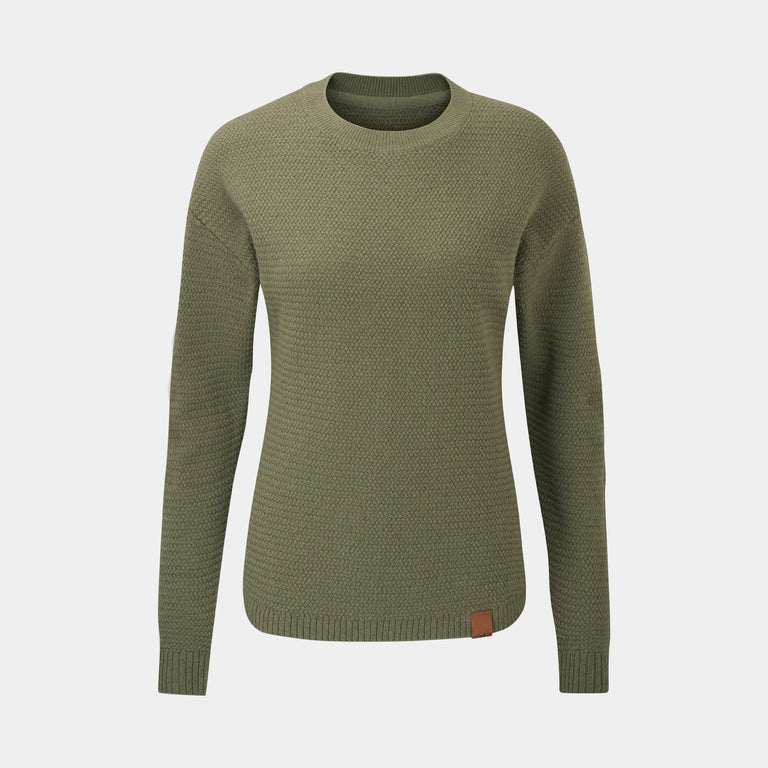
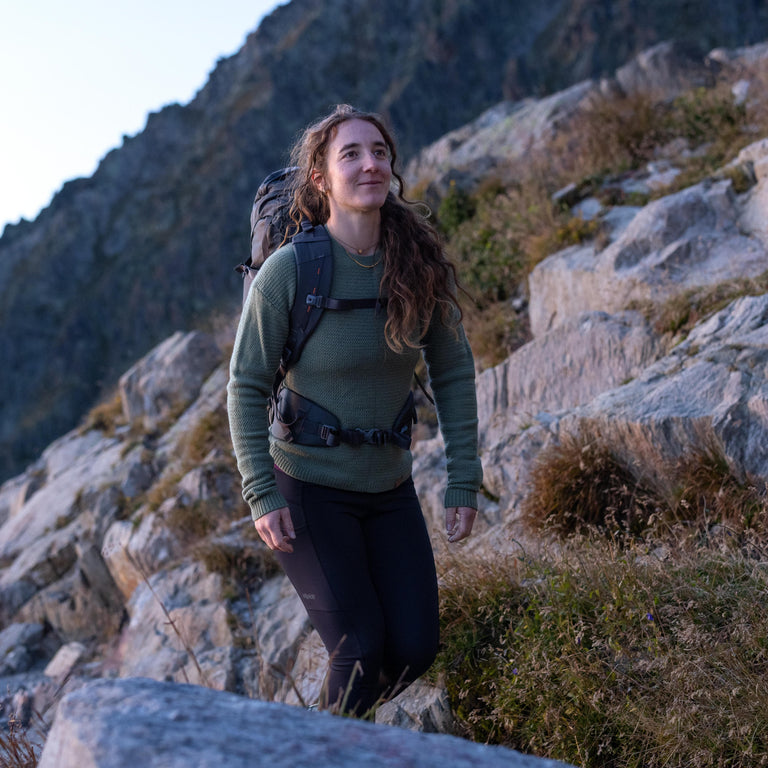
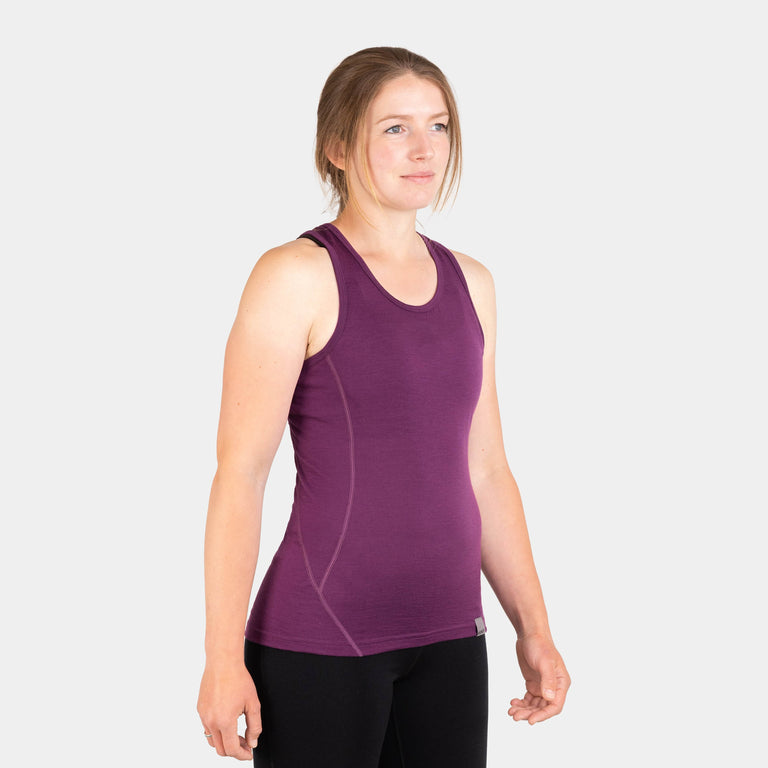
![Kepler Vest [Womens]](http://alpkit.com/cdn/shop/products/kepler-vest-womens_07b896c4-6e7c-40bb-8a9c-a6597aef20eb.jpg?v=1686918371&width=768)

![Kepler Short Sleeve [Mens]](http://alpkit.com/cdn/shop/files/mens-kepler-short-sleeve-navy.jpg?v=1768317783&width=768)

![Kepler Short Sleeve [Womens]](http://alpkit.com/cdn/shop/files/womens-kepler-short-sleeve-cosmos.jpg?v=1768317755&width=768)
